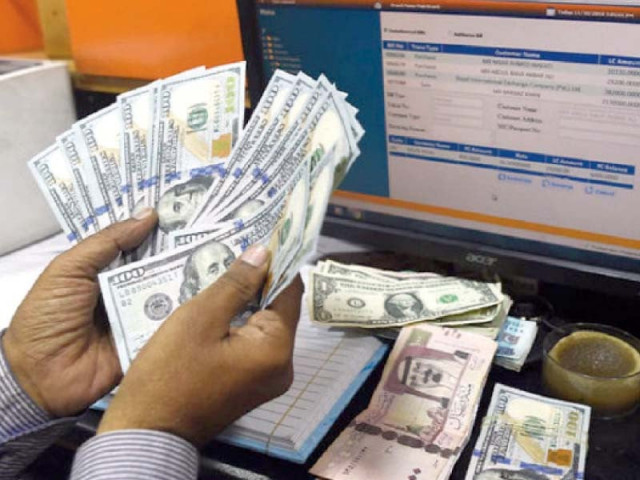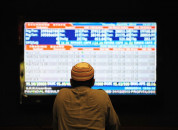Bond yields rise further
Finance ministry borrows Rs89 billion in auction, 11% less than target

Commercial banks have further increased the interest rate on fresh financing for the cash-strapped government, as the demand for funds to meet budgetary expenditures stood high whereas political uncertainty restrained the rulers from making tough decisions.
The cut-off yields on three and five-year Pakistan Investment Bonds (PIBs) rose by 70 basis points (bps) and 24bps respectively, though the Ministry of Finance opted to borrow 11% less than the target. It borrowed Rs89 billion through the auction of bonds on Wednesday compared to the target of Rs100 billion, local research houses reported citing central bank’s data.
The cut-off yields would have gone further up had the ministry raised the targeted amount of Rs100 billion or more. The government, however, rejected the bids of commercial banks for 10 and 15-year PIBs apparently after they demanded significantly higher yields compared to expectations. “The government accepted the amount up to the cutoff yields which were near and around the targets … the rest it rejected,” Arif Habib Limited (AHL) Head of Research Tahir Abbas said while talking to The Express Tribune.
Commercial banks offered total bids of Rs614 billion against the auction target of Rs100 billion, according to the auction data. Abbas, however, said the uptick in cut-off yields was not huge, while the borrowing was close to the target. It was the first auction of government debt securities following the central bank increased the key policy rate by 150bps to an 11-year high at 13.75% on Monday. The cut-off yields on the long-term (three- to 30-year) PIBs remained lower compared to the short-term (three to 12-month) treasury bills.
The auction suggests that the cycle of upward revision in the State Bank’s policy rate has peaked out and the financial market foresees a decrease in the rate in the long run. Ismail Iqbal Securities Head of Research Fahad Iqbal said the other day the government’s financing requirement was on the rise, as it decided to continue to give subsidy on petroleum products and electricity to the end-consumers. The government is paying around Rs100 billion a month in subsidies.
The research head of PakKuwait Investment Co projected a significantly high fiscal deficit at Rs3 trillion for the last quarter (Apr-Jun) of current fiscal year. Earlier, the fiscal deficit was recorded at Rs2.58 trillion for the first nine months of FY22, he pointed out. The government is apparently waiting for the normalisation of political situation in the country to fix the fiscal imbalances by passing the increase in international crude oil prices on to end-consumers.
Finance Minister Miftah Ismail, however, has ruled out any increase in energy prices at least for now keeping in view the growing political uncertainty. The rise in energy prices will spark a new wave of inflation, taking the reading to around 15% or more in the next couple of months.
Auction results
The government raised Rs24 billion through the sale of three-year PIBs to commercial banks at a cut-off yield of 14%. The amount was Rs6 billion less than the target of Rs30 billion while the yield was 70bps higher compared to the previous auction held on April 28.
It borrowed another Rs66 billion through the fiveyear PIBs at a cut-off yield of 13.19%. The amount was Rs41 billion higher compared to the target of Rs25 billion while the yield was up 24bps from 12.95bps in the previous auction. The banks did not place any bids for the 20-year and 30-year PIBs. The yields on Pakistan’s US dollar-denominated bonds (Eurobond and Sukuk) have spiked to historic highs at 26- 27% in the global market.
Similarly, the risk of default by the country, measured through the credit default swap (CDS), has shot up to 16% compared to the usual 3-4%. The yields and CDS have surged due to the growing shortage of foreign currency, which is required to pay for imports and repay foreign debt.


















COMMENTS
Comments are moderated and generally will be posted if they are on-topic and not abusive.
For more information, please see our Comments FAQ